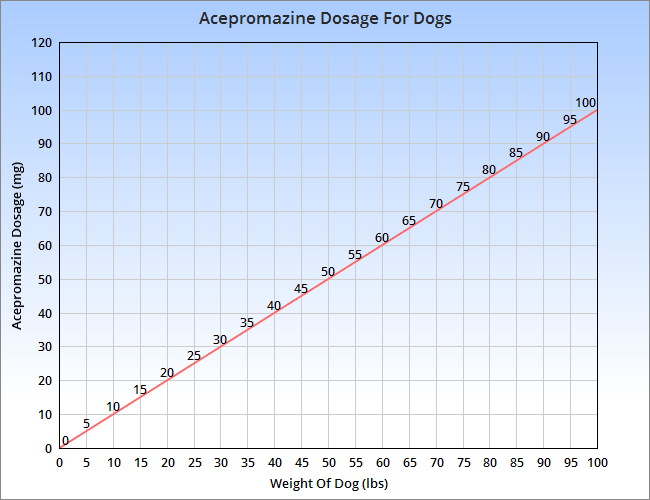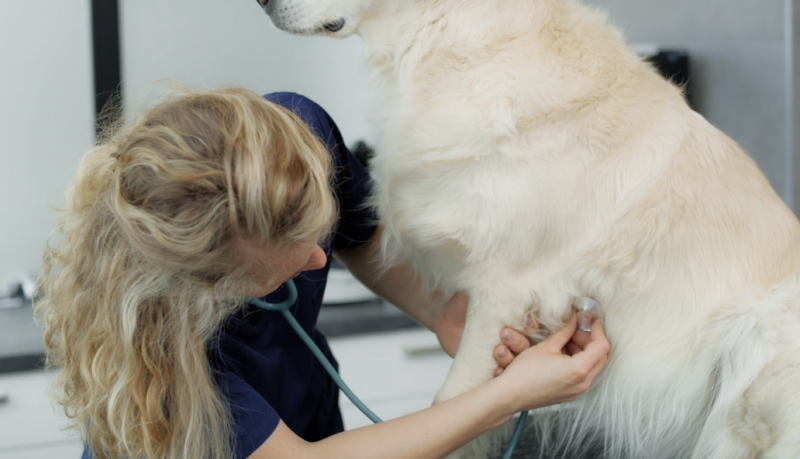
-
 Jane Harmon
Jane Harmon
- Published:
- Updated: March 12, 2024
- Category: Medication and Treatments, Pet Health and Care
Share Post:
When it comes to caring for our pets, ensuring their comfort and safety is the most important thing, especially in stressful situations like veterinary visits or surgeries. Acepromazine, a widely used sedative in veterinary medicine, plays a crucial role in these scenarios.
However, its use demands precision and knowledge, particularly in dosage calculations. This comprehensive guide aims to explain the whole process of calculating a safe acepromazine dosage for dogs thoroughly, ensuring your furry friend receives the best care possible.
Calculating the Right Dosage

The correct dosage of acepromazine depends on several factors, including the dog’s weight, age, health status, and the specific condition being treated. A younger, healthier dog might metabolize the medication differently than an older dog with underlying health issues.
Additionally, the dog’s breed can also influence the dosage, as some breeds are more sensitive to certain medications.
It’s also important to consider any other medications the dog may be taking, as these could interact with acepromazine and affect its efficacy or safety.
General Guidelines
The general dosing guideline for acepromazine in dogs is 0.5-2.2 mg/kg. However, this range can vary based on individual circumstances. It’s crucial to follow a veterinarian’s advice when determining the correct dosage.
For dogs with a history of sensitivity to medications, vets may start at the lower end of the dosage range. In contrast, dogs undergoing more stressful or painful procedures might require a dose towards the higher end.
Remember, each dog is unique, and the ‘one size fits all’ approach doesn’t apply when it comes to medication dosages.
Example
For instance, if you have a 20 kg dog, and the vet prescribes a dose of 1 mg/kg, the total dose would be 20 kg x 1 mg/kg = 20 mg of acepromazine. This calculation simplifies the process of determining the right amount of medication.
However, it’s essential to measure the dose accurately, as even small deviations can have significant effects. For dogs that fall between standard weight categories, careful calculation and adjustment of the dose are necessary. It’s always better to err on the side of caution and consult your vet if you’re unsure about the correct dosage.
Precautions and Side Effects
Acepromazine should be used with caution in dogs with a history of seizures, as it can exacerbate these conditions. Additionally, this medication can interact with other drugs, so it’s essential to inform your veterinarian about any other medications your dog is taking.
Some breeds, particularly giant breeds, sighthounds, and boxers, may be more sensitive to its effects, requiring adjusted dosages. Dogs with liver or heart problems should be closely monitored when on acepromazine, as the drug can affect these organs.
Common Side Effects

Side effects of acepromazine can include:
- lethargy,
- reduced blood pressure,
- and decreased respiratory rate.
Prolonged effects of sedation, such as disorientation or difficulty in standing, can also occur in some dogs. In rare cases, dogs may experience an allergic reaction to the medication, presenting symptoms like hives, itching, or difficulty breathing.
It’s important to monitor your dog for any adverse reactions and report them to your veterinarian. If you notice any severe or persistent side effects, immediate veterinary attention is necessary to ensure your dog’s safety and well-being.
What Are Its Benefits?

Acepromazine, when used appropriately, offers several benefits for dogs, especially in stressful or anxiety-inducing situations. Here are some key advantages:
- Sedation and Calmness: Acepromazine is highly effective in calming dogs who are anxious or nervous, particularly during vet visits, grooming sessions, or other potentially stressful events. This helps in reducing stress-related behaviors and makes handling easier.
- Pre-anesthetic Use: Often used as a pre-anesthetic agent, this medicine helps to relax dogs before surgery. This can make the induction of anesthesia smoother and may reduce the amount of general anesthetic needed.
- Safety and Chemical Restraint: In situations where a dog might pose a risk to itself or others due to aggressive or hyperactive behavior, acepromazine serves as a chemical restraint, ensuring the safety of the dog and those around it.
- Motion Sickness Relief: While not the first choice for motion sickness anymore, this medicine can still be used to help dogs who experience nausea or vomiting while traveling.
- Reduced Risk of Self-Injury: By calming hyperactive or panicked dogs, acepromazine can decrease the likelihood of injuries caused by frantic movements or escape attempts.
- Easing Vet and Grooming Visits: For dogs that are extremely fearful or stressed during veterinary examinations or grooming, this medicine can make these necessary activities less traumatic, improving overall experiences for both the dog and the handler.
Should You Consult with Your Veterinarian?

Always seek the guidance of a veterinarian before administering acepromazine. They can provide tailored advice based on your dog’s specific needs and medical history.
A veterinarian’s expertise is crucial in determining the right dosage and identifying any potential risks, including allergies or interactions with other medications your dog may be taking.
They can also advise on the best way to administer the medication, whether orally or by injection, and what signs to look out for in case of adverse reactions. Furthermore, veterinarians can offer insight into alternative treatments if acepromazine is not suitable for your dog, ensuring the safest and most effective care.
Regular Monitoring
Regular follow-ups with your vet are essential to ensure the safety and effectiveness of the treatment. During these visits, your vet can monitor your dog’s response to the medication and adjust the dosage if necessary.
They can also check for any side effects or changes in your dog’s overall health and behavior, providing an opportunity to address any concerns promptly. These regular check-ins are vital, especially for long-term treatments, as they help in maintaining your dog’s well-being and comfort.
Additionally, these sessions are a great opportunity to discuss any changes in your dog’s lifestyle or environment that might affect their treatment plan, ensuring a holistic approach to their care.
FAQs
Can acepromazine be used for all dog breeds?
This medicine is generally safe for most dog breeds, but some breeds like Boxers, Greyhounds, and Collies may have increased sensitivity to this medication. These breeds might require a lower dosage or an alternative medication.
Always consult your veterinarian for breed-specific advice.
How long does it take for acepromazine to take effect in dogs?
It typically starts to take effect within 30 to 60 minutes after administration. The peak sedative effect usually occurs within 1 to 1.5 hours. However, this can vary depending on the dog’s size, overall health, and the method of administration.
Can acepromazine be given with food?
The medicine can be given with or without food. However, administering it with food might help in reducing gastrointestinal upset. It’s important to follow your veterinarian’s specific instructions regarding food and medication.
Is it safe to use acepromazine for long-term sedation in dogs?
Acepromazine is typically used for short-term sedation. Its long-term use is generally not recommended due to potential side effects and the possibility of decreased effectiveness over time. For long-term management of anxiety or stress, other medications or non-medical interventions might be more appropriate.
What should I do if I miss a dose of acepromazine for my dog?
If you miss a dose, give it as soon as you remember. However, if it’s almost time for the next dose, skip the missed dose and continue with the regular schedule. Do not double up doses. Always consult your veterinarian for guidance in such situations.
Can acepromazine be used in conjunction with other anxiety medications?
Acepromazine may be used with other medications, but this should only be done under the guidance of a veterinarian. The vet will consider potential drug interactions and the overall health of your dog before recommending a combination of medications.
The Bottom Line
Acepromazine is a powerful tool in veterinary medicine, but its use requires careful consideration and precise dosing. By understanding the factors that influence dosage and following your veterinarian’s advice, you can ensure that your dog receives the best possible care.
Always keep in mind that the goal is not just to sedate your dog but to do so safely and effectively, prioritizing their overall well-being.
Related Posts:











